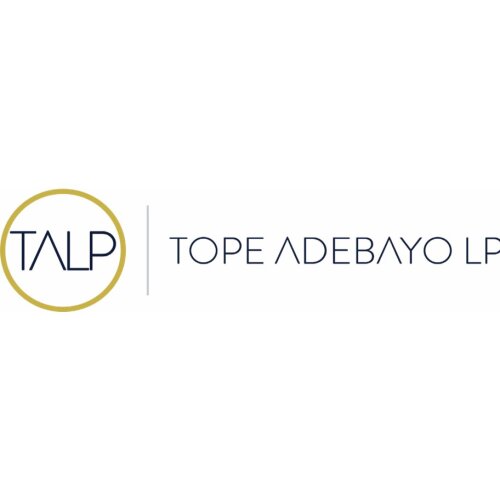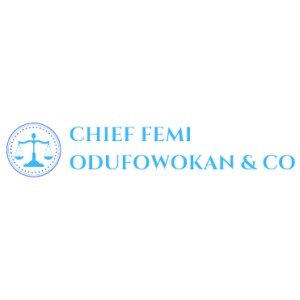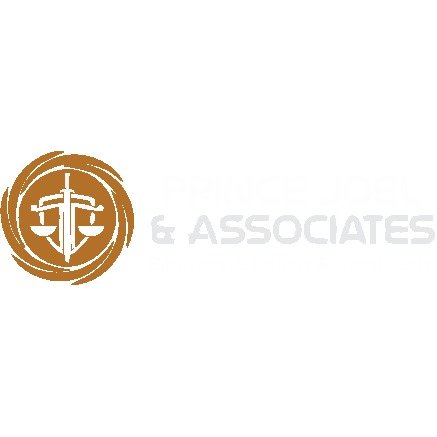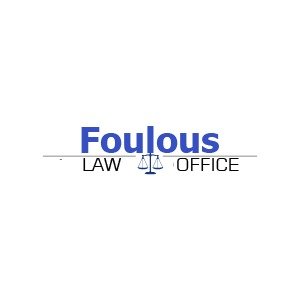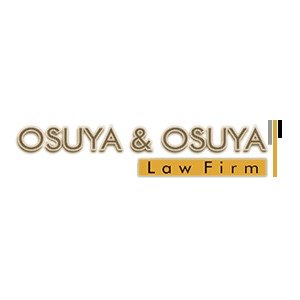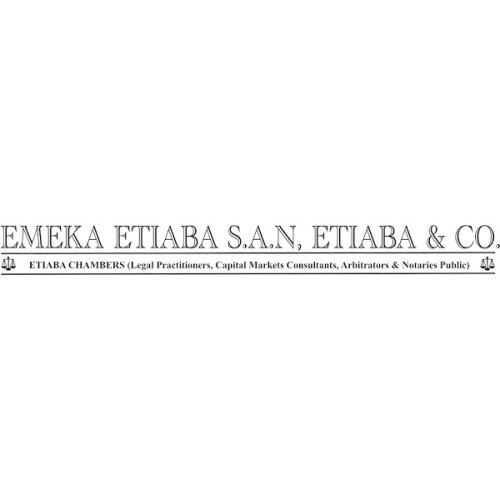Best Health insurance Lawyers in Nigeria
Share your needs with us, get contacted by law firms.
Free. Takes 2 min.
Or refine your search by selecting a city:
List of the best lawyers in Nigeria
Legal guides written by Adeola Oyinlade & Co:
- Procedure and Requirements for Work Permit and Visas in Nigeria
- The Step-By-Step Procedure of How to Apply for Microfinance Bank License Online in Nigeria
- How to Ensure the Smooth Recognition and Enforcement of Foreign Judgments in Nigeria
About Health Insurance Law in Nigeria
Health insurance in Nigeria is designed to provide coverage for medical expenses and access to healthcare services for citizens. The central framework governing health insurance in Nigeria is the National Health Insurance Scheme (NHIS), which was established to ensure that every Nigerian has access to good healthcare services and protect families from the financial hardships associated with large medical bills. The scheme also aims to improve and harness private sector participation in healthcare delivery and promote equity in access to healthcare services.
Why You May Need a Lawyer
There are several situations where individuals may need legal assistance concerning health insurance in Nigeria:
- Claims Denial: You might face denial of claims by your insurer, which can require legal interpretation and intervention.
- Understanding Policies: Health insurance policies can be complex, and understanding their terms and conditions may require legal expertise.
- Dispute Resolution: Disagreements with insurers or healthcare providers on the terms of service or payment can lead to disputes that necessitate legal advice.
- Fraudulent Practices: In cases where there are suspicious activities or fraud related to health insurance, legal counsel may be needed to navigate these issues properly.
- Regulatory Compliance: Businesses offering health insurance plans need to ensure compliance with national regulations, and lawyers provide necessary guidance.
Local Laws Overview
Health insurance in Nigeria is regulated primarily by the National Health Insurance Act. Key aspects of the relevant laws include:
- Mandatory Coverage: Efforts to make health insurance coverage more widespread have led to mandatory Health Insurance requirements for companies.
- Universal Health Coverage (UHC): The goal is to increase access to health services for all Nigerians without financial constraints.
- Role of Health Maintenance Organizations (HMOs): HMOs are established to manage health insurance services and agreements between beneficiaries and healthcare providers.
- Consumer Protection: Regulations are in place to protect the interests of individuals enrolled in health insurance schemes against exploitation.
- Payment Models: Policies allow for systematic premium collections and timely disbursements to service providers.
- Oversight by NHIS: The NHIS oversees insurance operations, ensuring adherence to guidelines and quality of services.
Frequently Asked Questions
What is the National Health Insurance Scheme (NHIS)?
The NHIS is a federal government initiative designed to provide accessible and affordable health care services to all Nigerians through prepayment plans.
Who can enroll in the NHIS?
All Nigerian citizens can enroll in the NHIS, including employees of both the public and private sectors, as well as self-employed persons and informal workers.
What is the role of Health Maintenance Organizations (HMOs)?
HMOs are responsible for managing the health insurance funds and ensuring that the services covered under the health insurance scheme are provided to enrolled participants.
How are health insurance premiums set in Nigeria?
Premiums are typically determined by the insurance provider and depend on various factors such as age, health risks, and the extent of coverage required.
What should I do if my health insurance claim is denied?
If your claim is denied, you should first contact your insurer to understand the reasons. If unsatisfied, you might consider consulting a lawyer for assistance.
Is private health insurance available in Nigeria?
Yes, in addition to the NHIS, there are private health insurance providers offering a variety of plans to individuals and organizations.
Can I switch my HMO if I am not satisfied with its services?
Yes, participants in the NHIS can switch their HMO if they are not satisfied with the services provided, but this must be done following specific procedures outlined by the NHIS.
Are there penalties for not having a health insurance plan in Nigeria?
While there is an increasing push for mandatory health insurance, there aren't systematic penalties for individuals who are uninsured, although practical access to healthcare remains limited for those without coverage.
How often can premiums change, and how am I notified?
Health insurance premiums may change annually based on actuarial assessments, and policyholders are typically notified in advance of any changes to the terms of their coverage.
What does a typical health insurance policy cover?
Typically, health insurance policies in Nigeria cover a range of services including outpatient care, hospitalization, maternal and child care, prescriptions, and sometimes dental and vision care, depending on the plan.
Additional Resources
For those seeking further information or legal advice in health insurance, the following resources could be helpful:
- National Health Insurance Scheme (NHIS): The official body responsible for implementing health insurance policies.
- Nigerian Bar Association (NBA): Can provide referrals to lawyers who specialize in health insurance laws.
- Health Maintenance Organizations (HMOs): Contact your HMO for specific details about coverage and disputes.
- Consumer Protection Council (CPC): Offers support and protection to consumers facing unfair treatment.
- Legal Clinics: Institutions offering free legal services may provide advice on health insurance-related issues.
Next Steps
If you need legal assistance concerning health insurance in Nigeria, consider taking these steps:
- Identify the Issue: Clearly understand the problem concerning your health insurance coverage or claim.
- Consult with a Professional: Reach out to a lawyer specializing in health insurance law to discuss your situation.
- Prepare Documentation: Gather all necessary documents such as policy agreements, correspondence with your HMO, and any official notices.
- Explore Options: Discuss potential resolutions and legal avenues with your legal advisor.
- Take Informed Action: Based on professional advice, decide the best course of action, whether it involves negotiation, litigation, or pursuing alternative solutions.
Lawzana helps you find the best lawyers and law firms in Nigeria through a curated and pre-screened list of qualified legal professionals. Our platform offers rankings and detailed profiles of attorneys and law firms, allowing you to compare based on practice areas, including Health insurance, experience, and client feedback.
Each profile includes a description of the firm's areas of practice, client reviews, team members and partners, year of establishment, spoken languages, office locations, contact information, social media presence, and any published articles or resources. Most firms on our platform speak English and are experienced in both local and international legal matters.
Get a quote from top-rated law firms in Nigeria — quickly, securely, and without unnecessary hassle.
Disclaimer:
The information provided on this page is for general informational purposes only and does not constitute legal advice. While we strive to ensure the accuracy and relevance of the content, legal information may change over time, and interpretations of the law can vary. You should always consult with a qualified legal professional for advice specific to your situation.
We disclaim all liability for actions taken or not taken based on the content of this page. If you believe any information is incorrect or outdated, please contact us, and we will review and update it where appropriate.
Browse health insurance law firms by city in Nigeria
Refine your search by selecting a city.





